Down Under at the Palais Garnier Opera House
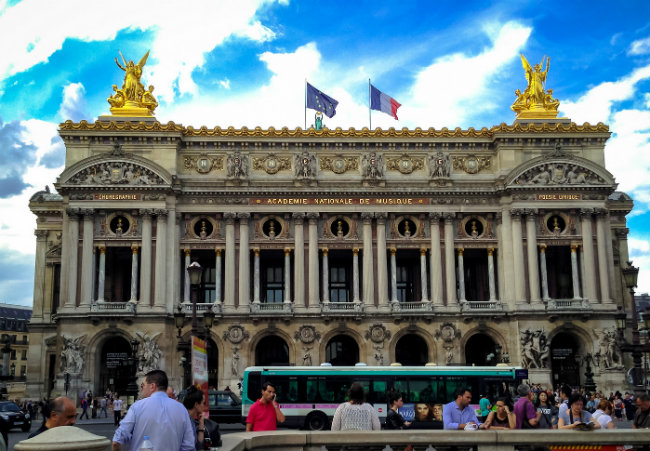

- SUBSCRIBE
- ALREADY SUBSCRIBED?
BECOME A BONJOUR PARIS MEMBER
Gain full access to our collection of over 5,000 articles and bring the City of Light into your life. Just 60 USD per year.
Find out why you should become a member here.
Sign in
Fill in your credentials below.
Of the many symbols of Paris, the Palais Garnier is certainly one of those most closely associated with the city. The opera house was finished in 1875 and it may very well be the most famous opera house in existence. This claim is made in part because of its unquestionable beauty but also because of the fame generated from Le Fantôme de l’Opéra by Gaston Leroux in 1910. This story was published as a serial in Le Gaulois over a three and a half month period and shortly thereafter as a novel.
In brief, the story is a love triangle between the beautiful Christine with her childhood friend, Raoul, and the phantom, Erik. Erik is a deformed architect who helped build the Paris Opera House while simultaneously and secretly building an underground palace for himself where a vast subterranean lake flowed.
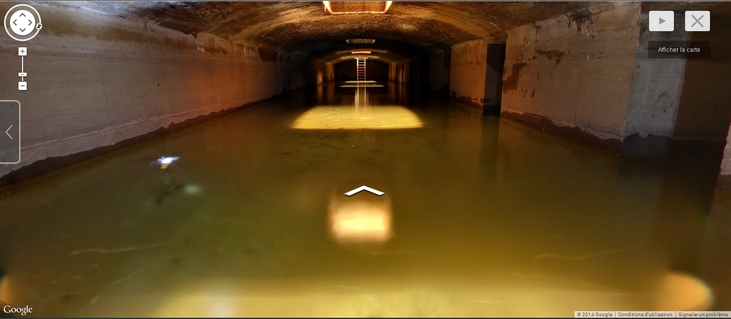
You can navigate the Opera’s underground world on Google maps! courtesy of Google Street View
If you thought that the water in the basement was a myth fabricated by Gaston Leroux, it is not. Let’s go back to 1862 when the first concrete foundations were being poured. The opera house needed a significantly deeper basement than other buildings but they were digging into a marshy area where the groundwater was particularly high.
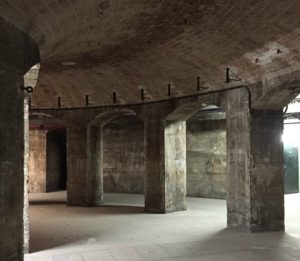
Underground tunnels beneath the Paris opera house. Photo: Loui Franke
After unsuccessfully attempting to drain the site with wells and steam pumps, Charles Garnier, the real architect, came up with a solution. He designed a double foundation to protect the superstructure from moisture that included an enormous cistern which relieves the pressure from the external groundwater and also allows for a reservoir of water in the event of a fire.
Speaking of fire, the fire fighters in Paris do their underwater training in this cistern.
I had the opportunity to explore the alcoves and passageways below the Palais Garnier and to get a glimpse of this subterranean lake. I was told that the area has lost much of its eeriness due to ongoing upgrades but my imagination had no problem to envision a netherworld that was the inspiration for Leroux’s famous story.
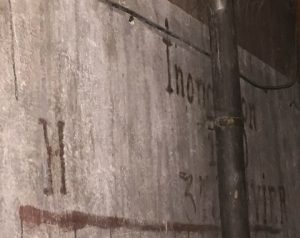
The flood mark “H” from 1910. Photo: Loui Franke
If you are wondering about the impact of the flooding in Paris on the opera house and on its underground lake, there has been no impact. None at all. The level of the water in the cistern has remained constant. However, during the great flood of 1910, this was not the case. The cistern was completely filled and the tunnels were filled with water to over five feet. There is a water mark noted with an “H” (for la hauteur) in a difficult to reach area. But, I did manage to squeeze into this spot and take a photo. The “H” was well above my head and I am 5 feet 6 inches.
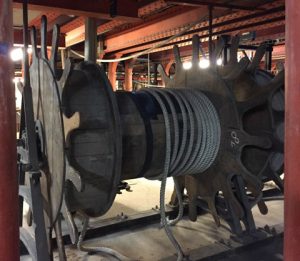
Machinery underneath the Opera for set changes. Photo: Loui Franke
I am sorry to tell you that the lake is not part of the standard tours offered at the Palais Garnier. However, the building is absolutely magnificent and I strongly encourage everyone to visit it. They have guided tours in English everyday at 11:00 and at 2:30. You can reserve online at visite guidée Opéra Garnier or you can email for a reservation at [email protected].
If you have the time, why not get tickets for a magical experience of being at the Palais Garnier? For more information, check the official website.
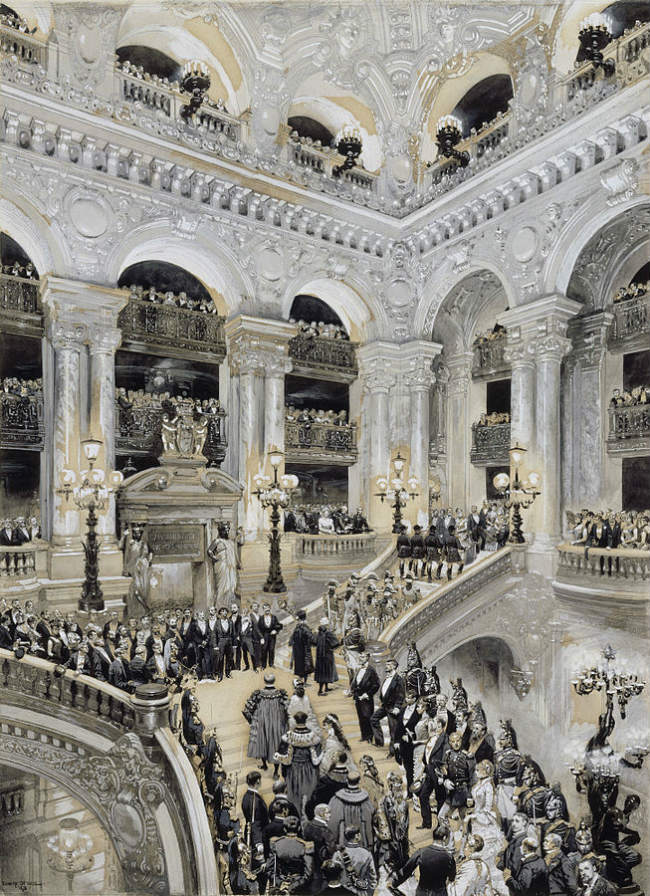
Inauguration of the Paris Opera in 1875 (Édouard Detaille, 1878)/ Public Domain
Photo credits: The Palais Garnier by Andy Hay/ Flickr;
Lead photo credit : The Palais Garnier by Andy Hay/Flickr



REPLY